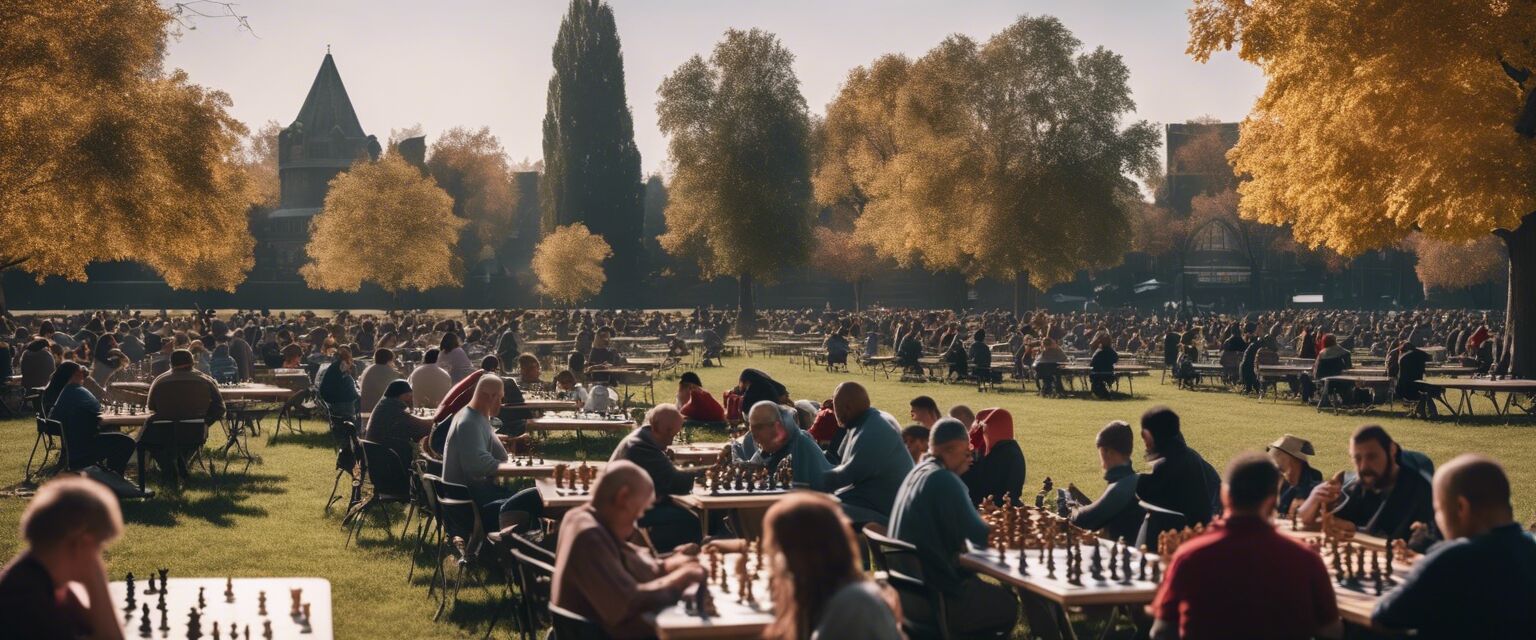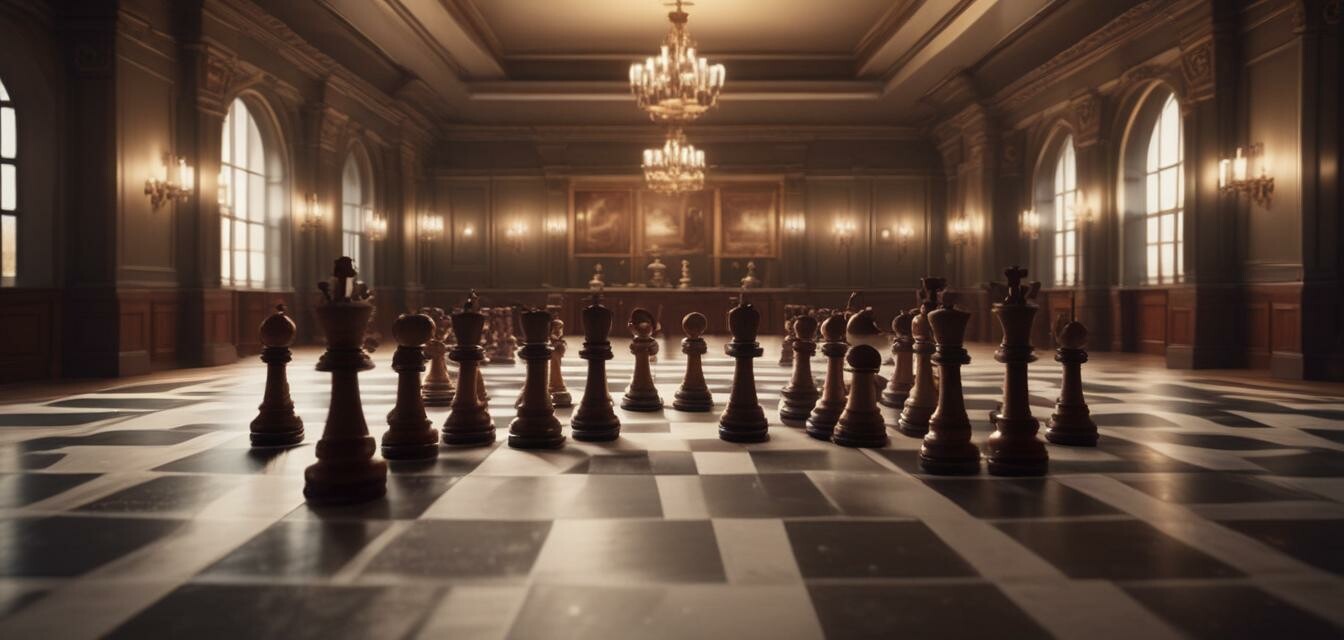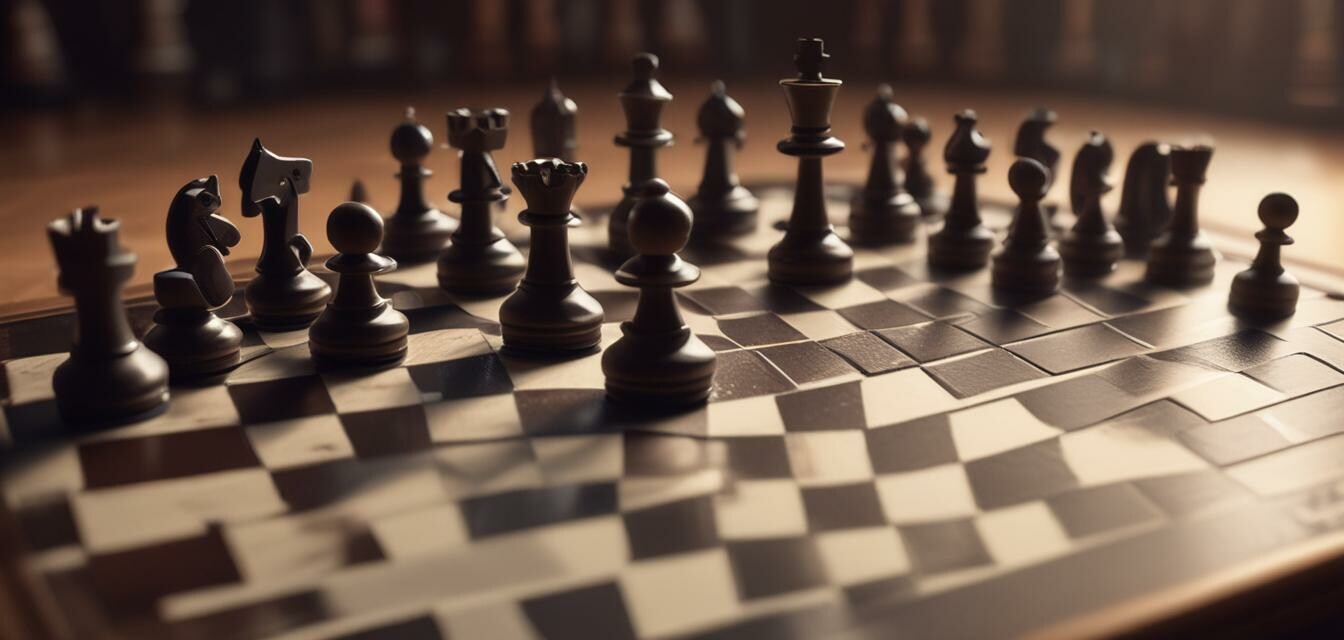
Chess Community and Culture
Key Takeaways
- The chess community is diverse and spans across various cultures and demographics.
- Chess promotes skills such as strategic thinking, patience, and social interaction.
- Local clubs and online platforms play significant roles in connecting players globally.
- Cultural influences can be seen in chess styles and celebration of significant events.
- Chess is more than a game; it's a community where enthusiasts share knowledge, skills, and friendship.
The chess community is a rich tapestry woven through various cultures, fostering connections among individuals worldwide. From local clubs encouraging newcomers to global online platforms that break geographical barriers, chess serves as both a competitive sport and a cultural activity. This article explores the myriad ways in which chess congregates people and the cultural significance it holds in societies around the globe.
Global Chess Community Overview
The global chess community is as diverse as the players themselves. It encompasses seasoned grandmasters, enthusiastic amateurs, and curious beginners alike. Chess enthusiasts often gather in clubs, cafes, and online forums, sharing their love for the game and engaging in spirited discussions. This strong sense of community transforms chess from a mere pastime into a cultural phenomenon.
The Role of Local Clubs
Local chess clubs serve as the backbone of the chess community. They provide a welcoming environment where players of all skill levels can meet, compete, and improve. Many clubs also host tournaments, coaching sessions, and social events.
The Impact of Online Platforms
The rise of online chess platforms has revolutionized the way players interact. Websites like chess software provide tools for practicing and competing with players across the globe, breaking the limitations of time and space.
| Type of Community | Features | Benefits |
|---|---|---|
| Local Clubs | In-person games, tournaments, social gatherings | Face-to-face interaction, community bonding |
| Online Platforms | Virtual tournaments, chat rooms, learning resources | Accessible from anywhere, broad player base |
| International Events | World Championships, Olympiads, Grand Prix | Showcasing diverse styles, fostering global competition |
Cultural Significance of Chess
Chess is not merely a game; it embodies cultural values and traditions. Across different countries, chess is celebrated and integrated into the social fabric of communities.
Chess in Various Cultures
Each culture offers a unique perspective on chess, influencing playing styles, strategies, and teaching methods. Here are a few notable examples:
- Russia: Known for its intense schooling in chess, Russia has produced many world champions, emphasizing the game's academic aspect.
- China: Popular variations like Xiangqi illustrate cultural adaptations of chess combined with rich historical narratives.
- India: As the birthplace of chess (Chaturanga), India has a profound historical connection and modern resurgence in chess appreciation.

Celebration of Chess Events
International tournaments and events celebrate chess's global appeal. Significant occasions foster excitement within the chess community, drawing participants and spectators alike. Key events include:
- World Chess Championship
- Chess Olympiad
- National tournaments
- Online global competitions
The Community's Support System
The community is not just a space for competition; it also offers support for players of all skills. This is achieved through mentorship programs, educational resources, and scholarship opportunities available via various chess books and courses.
Tips for Getting Involved in the Chess Community
- Join a local chess club to meet fellow enthusiasts.
- Participate in online forums to discuss strategies and games.
- Attend chess events and tournaments to gain exposure and experience.
- Engage with online platforms by playing games and watching tutorials.
- Read books or articles about chess culture to deepen your understanding.
Conclusion
Chess embodies a community that transcends borders, cultures, and generations. It unites individuals with varying backgrounds, inviting them to share their passion for the game. Whether through local clubs or international events, the bond formed among chess enthusiasts is a testament to the game's timelessness and cultural significance in societies worldwide.
Pros
- Fosters social interaction and friendships.
- Encourages critical thinking and strategy development.
- Welcoming to players of all ages and skill levels.
Cons
- High competition can intimidate beginners.
- Time commitment can be significant during tournaments.
- Some players may experience stress or pressure to perform.

Further Reading
For more insights into the chess community and culture, explore our articles on chess accessories, chess boards, and chess clocks.








